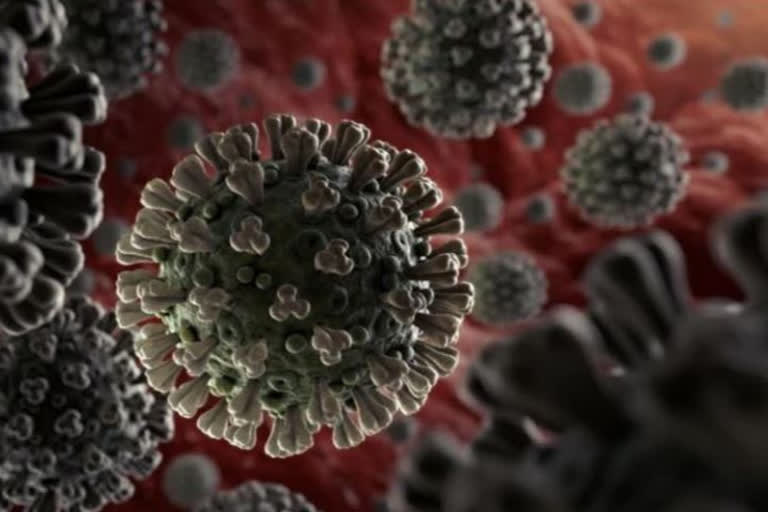Geneva (Switzerland): People who are still unvaccinated can suffer from a severe form of Covid-19 after getting infected with Omicron, Dr Maria Van Kerkhove, the World Health Organization COVID-19 Technical Lead, has said explaining how considering the new variant "mild" can be a mistake.
"People who are infected with Omicron have the full spectrum of disease, everything from asymptomatic infection all the way through severe disease and death. What we are learning is that people with underlying conditions, people with advanced age, people who are unvaccinated can have a severe form of COVID-19 following infection from Omicron. And so we know that people are still being hospitalized with this variant of concern, Omicron, as well as dying. So, it is important that we have information that is out there that is accurate, that does suggest, of course, that it is less severe than Delta, but that does not mean that it is mild," Dr Kerkhove said in a WHO QnA session.
Asked if reports claiming everyone will get Omicron are true, the WHO expert said that while Omicron was overtaking Delta in terms of circulation, and it was very efficiently transmitted between people, it did not mean that everybody will eventually get it.
"...but we certainly are seeing high cases and surges of cases around the world," she said. Dr Kerkhove reiterated the importance of vaccination in curbing the new variant however advised people to also follow Covid appropriate behaviour.
"Vaccination is incredibly protective against severe disease and death, but it also does prevent some infections and some onward transmission. But it's not perfect in terms of preventing infections and transmission. This is why we also recommend making sure people protect themselves against exposure. Physical distancing, wearing a well-fitted mask over your nose and mouth, making sure that you have clean hands, avoiding crowds, working from home if you can, getting tested and making sure that you seek appropriate care where needed. All of those measures, this layered approach, are ways in which you can keep yourself safe and also protect yourself from getting infected and passing the virus to somebody else," she said.
Read: '10 lakh Omicron cases in India in 2 months', warns Kerala Covid expert panel member
Dr Kerkhove said reducing transmission of Omicron was important for a number of reasons. First, she said, preventing people from getting infected was important because there was a risk that they could develop severe disease.
"There are ways in which we can prevent that but you are still at risk of developing disease. And if you have underlying conditions or have an advanced age, if you're not vaccinated, you could develop severe disease," she said.
The second reason, she said, was that experts had not completely understood the impact of post-COVID condition or long COVID. "So people who are infected with this virus have a risk of developing long term consequences, which we call post-COVID condition. And we really are only beginning to understand this. So there's a lot to learn about this and your risk of developing post-COVID condition, of course, is dependent on your risk of getting infected in the first place. So you want to prevent that," she said.
Third, she said, was a huge surge in cases burdening health systems as well as other essential services that are operating. "The large number of cases are really making it difficult for hospitals to operate, for services to be online, you know, public transportation, making sure we have groceries in our grocery store, schools, et cetera," she said.
"And lastly, the more this virus circulates, the more opportunities it has to change. So this virus is circulating at an incredibly intense level around the world for a number of reasons. But the more the virus circulates, the more opportunities the virus has to change," she said.
Dr Kerkhove's analysis comes during a global resurgence of the virus as the world coronavirus caseload by Sunday topped 348.5 million, while the deaths have surged to more than 5.59 million and vaccinations to over 9.77 billion, according to Johns Hopkins University.
The University's Center for Systems Science and Engineering (CSSE) revealed that the current global caseload and the death toll stood at 348,593,143 and 5,590,277, respectively, while the total number of vaccine doses administered has increased to 9,779,859,107.
The US continues to be the worst-hit country with the world's highest number of cases and deaths at 70,466,436 and 865,310, according to the CSSE. The second worst-hit country in terms of cases is India (38,903,731 infections and 488,884 deaths), followed by Brazil (23,931,609 infections and 623,191 deaths).
The other countries with over 5 million cases are France (16,506,090), the UK (15,814,535), Turkey (10,808,770), Russia (10,804,032), Italy (9,603,856), Spain (8,975,458), Germany (8,536,345), Argentina (7,694,506) Iran (6,241,843) and Colombia (5,686,065), the CSSE figures showed.
The nations with a death toll of over 100,000 are Russia (318,200), Mexico (302,390), Peru (203,868), the UK (154,000), Indonesia (144,201), Italy (142,963), Iran (132,172), Colombia (131,824), France (129,505), Argentina (118,969), Germany (116,555), Ukraine (105,545) and Poland (103,626).
Read: Omicron now in 171 countries, will soon replace Delta globally: WHO


